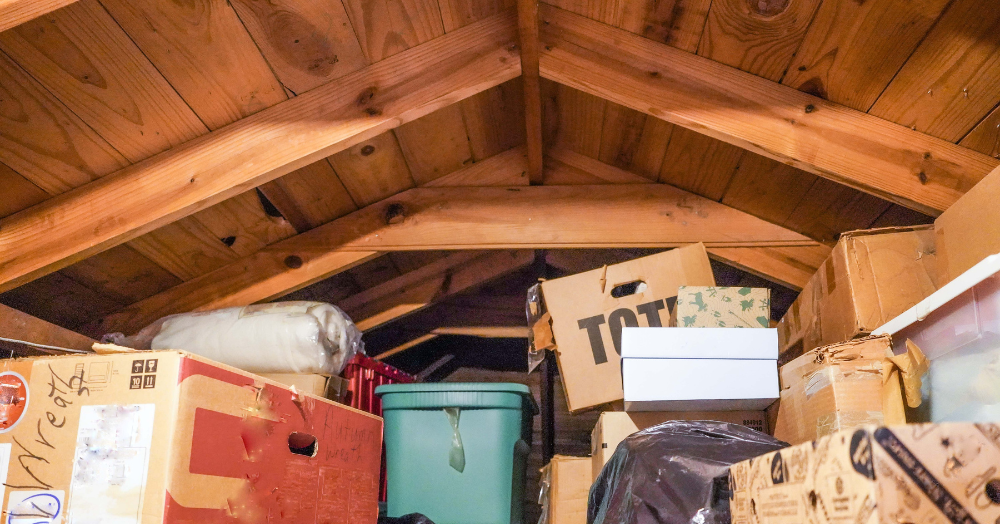When we upgrade our homes, the last thing on our minds is the certification after the builders have left; we are excited to get the new furniture in and start using the space, so it's easy for this to slip our minds. But what happens when you sell your house and suddenly have to provide all kinds of paperwork? Read this article to find out more...
Getting work done to your property is usually an exciting process, having an upgraded bathroom, kitchen or perhaps even an extension. After a few weeks or even months of living in a building site, you'd be forgiven for just wanting to get things back to 'normal' and enjoy your newly finished rooms.
You may be surprised to hear that many homeowners don't get the final sign-off certification for many of their home renovation projects. Some homeowners are unaware that they should save the paperwork for these jobs, or indeed, which pieces of paper are important and which aren't.
As you have work done at home, the contractor will provide you with an invoice and perhaps a sign-off certificate. Often, these pieces of paper get stored together and possibly end up in the bottom of a box in the loft or may get accidentally shredded when the invoice is paid, and any warranty offered has expired. But more likely, you forget entirely that a sign-off certificate is stashed away in the loft. And the reason that you forget altogether that you have it is because, unless something goes very wrong with the work that you've had done, you won't really need it.
That is until you sell your home.
When we decide to move and sell our homes, we are swept up in the excitement of choosing an estate agent, marketing, photoshoots and staging our rooms to make the best images possible. We do not think twice about that dusty box in the loft filled with all the important documents. And what if you've shredded them? Or never receive them in the first place? What then?
When you accept an offer for your property, the buyer has made it based on what they can see, but they will employ a solicitor who checks everything. When you're sent the property information questionnaire from your solicitor, you'll be asked when specific tasks were carried out and to provide completion certificates.
Some proactive agents might suggest that you prepare before you accept an offer, gathering up these documents so you don't create any avoidable delays to the already protracted conveyancing process. So, what do you need, and how can you get it?
Lost certificates:
If you have certified work carried out and you lose the certificate, in most circumstances, you could order a replacement or ask the buyer if they would be willing to accept an indemnity insurance policy to cover the fact that you do not have the relevant paperwork.
Safety certificates:
Where there is a safety aspect, such as electrical or central heating upgrades, you might offer a safety check to show that, although you don't hold the original certificate, a new certificate confirms the system's safety.
Building control/planning permissions:
In respect of building regulations or planning consent, there are many other things to take into consideration. Some works will have fallen under permitted development rules and wouldn't have needed planning permission, but there should still be a certificate to confirm this. However, serious implications can harm your sale, so with this matter, you should tread very carefully and take advice from your solicitor. If you contact the council to ask them about your project and the certifications for the job, you will invalidate the option for an indemnity policy for the missing paperwork. This could mean that there needs to be a visit to the property by someone from the building control department, and perhaps they will require you to do work to the property to bring it up to today's building regulations. This will cause a delay in waiting for the building control's initial visit, the new upgrading work to be done, and the revisit for the work to be signed off. You'll need to pay for the work and the visits and wait for the certificate to be issued. It could add months to your sale and possibly thousands of pounds for you to pay. And in all likelihood, your buyer probably didn't mind and would have been happy to accept an indemnity policy. This would have taken your solicitor an hour or so to source and a few hundred pounds for you to pay - a significantly better option than the previous scenario, I'm sure you'd agree.
To summarise, there is no need to panic if you've lost or destroyed these certificates you probably thought you'd never need. The most simple and commonly used remedy is the trusty indemnity policy, which can cover all manner of issues and allow your sale to continue without delay.
But to ensure you don't delay your sale and jeopardise your move, dig that old box out of the loft to see what you have and what is missing. But crucially, if you are missing paperwork, DO NOT try to get replacement copies until you have spoken to your solicitor; simply gather what you have and take legal advice from there.

